BITTER MOON. Darkest Corners of the Human Soul
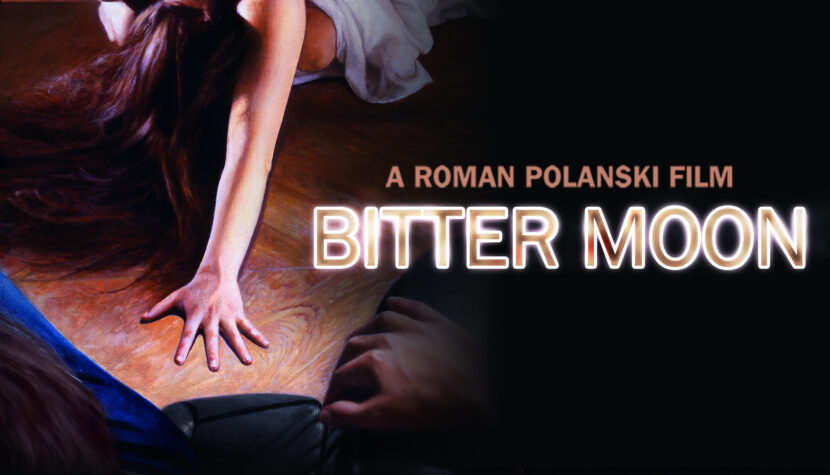
Few creators can transfer the world of a book to the screen with such finesse. This may be because they either slavishly adhere to the literary original or profanely alter significant details to fit their own twisted visions. Polanski, however, chooses what to bring to the screen in an extraordinarily intelligent and thoughtful manner. Here is one of the films illustrating this principle. The author is very consistent, leaving nothing to chance, eliminating unnecessary elements from the book, and modifying the ending…
I even like Bruckner’s Bitter Moon, on which the Master’s film is based. Despite some rather indigestible fragments, the book can draw you into a world of degeneration and pain. Both the film and the novel are exhibitionist, a complete revelation of one’s desires, erotic dreams, the realization of every whim, fantasies that can only be pleasurable on the plane of eternal unfulfillment. Bruckner greedily paints everything, delving into details, leaving no room for imagination. I wouldn’t call his work vulgar, but it is certainly a much less lyrical version than the story Polanski tells. While the writer focuses on successive erotic games, the director places greater emphasis on showing the trap that love brings. He does not delve into the successive stages of modern bacchanals as Bruckner does. Thus, we do not experience what is in the book – the detailed description of the orgiastic sessions of Parisian lovers. Polanski focuses on the addiction to feeling, the enslavement, the deliberate destruction of a partner. Of course, the film caused some scandal. Critics were divided, with some comments saying that the director had hit rock bottom. This, however, is quite characteristic of Polanski’s films – which of his works achieved undeniable success from the very beginning? They become masterpieces over time. I do not claim that Bitter Moon represents the pinnacle of this creator’s abilities, but it does not fall short of his previous achievements. There is a fascination here: a fascination with sensuality, a fascination with the other person, a fascination with Love along with everything it brings…
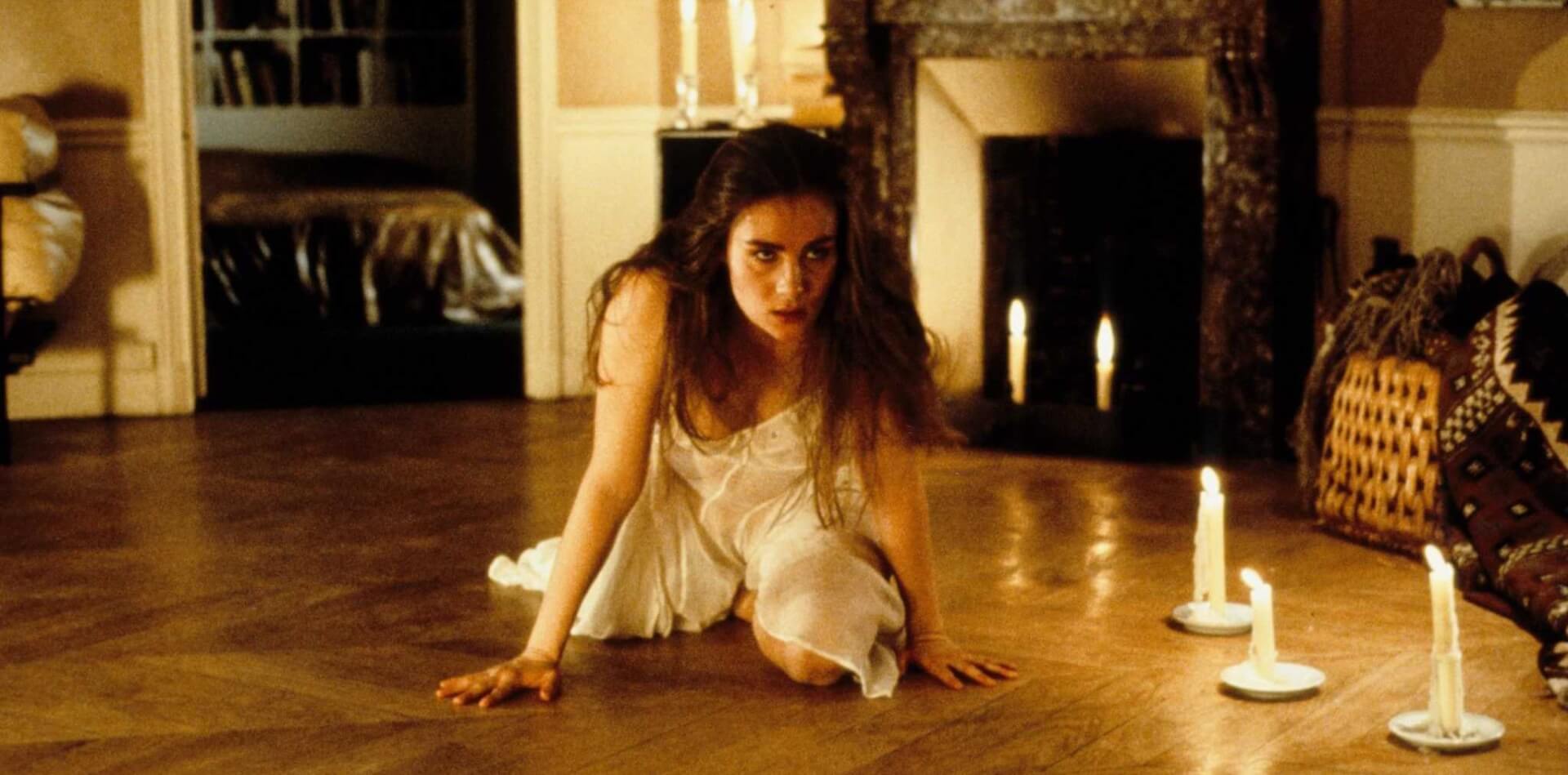
Sailing on a ship, we thus meet a couple who are emotional bankrupts. They are a married couple on their last journey. It is a planned farewell to the world, and since the man (Oscar) is an unfulfilled writer, he decides to tell his story to Nigel, whom he met on board. The character seems boring; a stable husband, a man without a sense of humor, clearly defining the boundaries of decency. He is on a trip with his wife, Fiona. On the surface, everything is fine between them, a typical English marriage. However, acquaintance with Oscar and his beautiful partner Mimi will expose the problems they carry within themselves, which are not trivial. Their feelings have burned out – she wants a child, he does not. They naively believe that the trip will solve their problems, that they will suddenly disappear – like with the touch of a magic wand. Instead of talking, they seek a solution by ignoring the crisis they are experiencing. But ignoring something does not mean it doesn’t exist…

Mimi and Oscar’s story begins very romantically. A man falls head over heels in love with a stranger on a bus, giving her his ticket. He pays the penalty for traveling ‘without a ticket’, she drives off. He can’t stop thinking about her, everything revolves around the mysterious woman. Every day, he travels the route where he met her. Looking at the panorama of Paris, he knows she is out there… but his persistent search yields nothing. This motif is a forewarning of what will come soon – the more the characters desire something, the more it will elude them… And so, when Oscar arranges to meet the newly acquainted woman, it turns out that the restaurant where the date takes place is the workplace of the blond angel from the bus… isn’t it incredibly sweet and banal? However, it also underscores the innocence and charm to provide a stronger contrast with what is to come later. Polanski likely deliberately eliminated the characters surrounding the protagonists in the book (like the unpleasant bus passenger), dressing the beginning of this acquaintance in what is most beautiful and innocent. Fascination is born, mutual infatuation. How school-like, considering that the one head over heels in love is a typical playboy, not looking for a steady relationship, but for one-night stands. Such is the beginning of their romance – beautiful, where they revel in mutual admiration. Soon, however, the first signs of crisis appear…

Dance plays a significant role in the film. And so, the prelude to entering a world where the characters will start fulfilling all their erotic dreams is Mimi’s sensual dance, which she once promised her lover. Oscar’s face shows fascination and desire… there is enormous magnetism between them, their relationship exudes sensuality. However, they quickly become satiated with each other, too greedy, and thus we enter the realm of sex-shop toys and invented stories, which soon cease to fascinate. The lovers burn out… a scene worth noting earlier is when Oscar shaves with a razor. When he hands it over to Mimi at her request, she accidentally cuts him with the blade. However, there is no trace of trust on his face. Their relationship is not based on trust. Over time, there is nothing more than the urge, and as fascination fades, Nigel begins to flirt, not necessarily with his affection. Despite this, he still loves her. And so, when Mimi retaliates by dancing with a colleague in front of him, Oscar becomes jealous, and rage takes over. Eventually, Mimi will fall at his feet, apologizing. He does not want to engage, she tires him. He rejects happiness because he is not the type to share his life with one woman. At the same time, he is jealous. He does not want her also because she evokes feelings in him unlike any other lovers. Routine catches up with them, and duty dominates pleasure. Now they only spiral downward, Oscar treats Mimi with disdain and malice, leading to her departure. He wants it to be her decision, which it is.
You did nothing. You exist… and that is all.
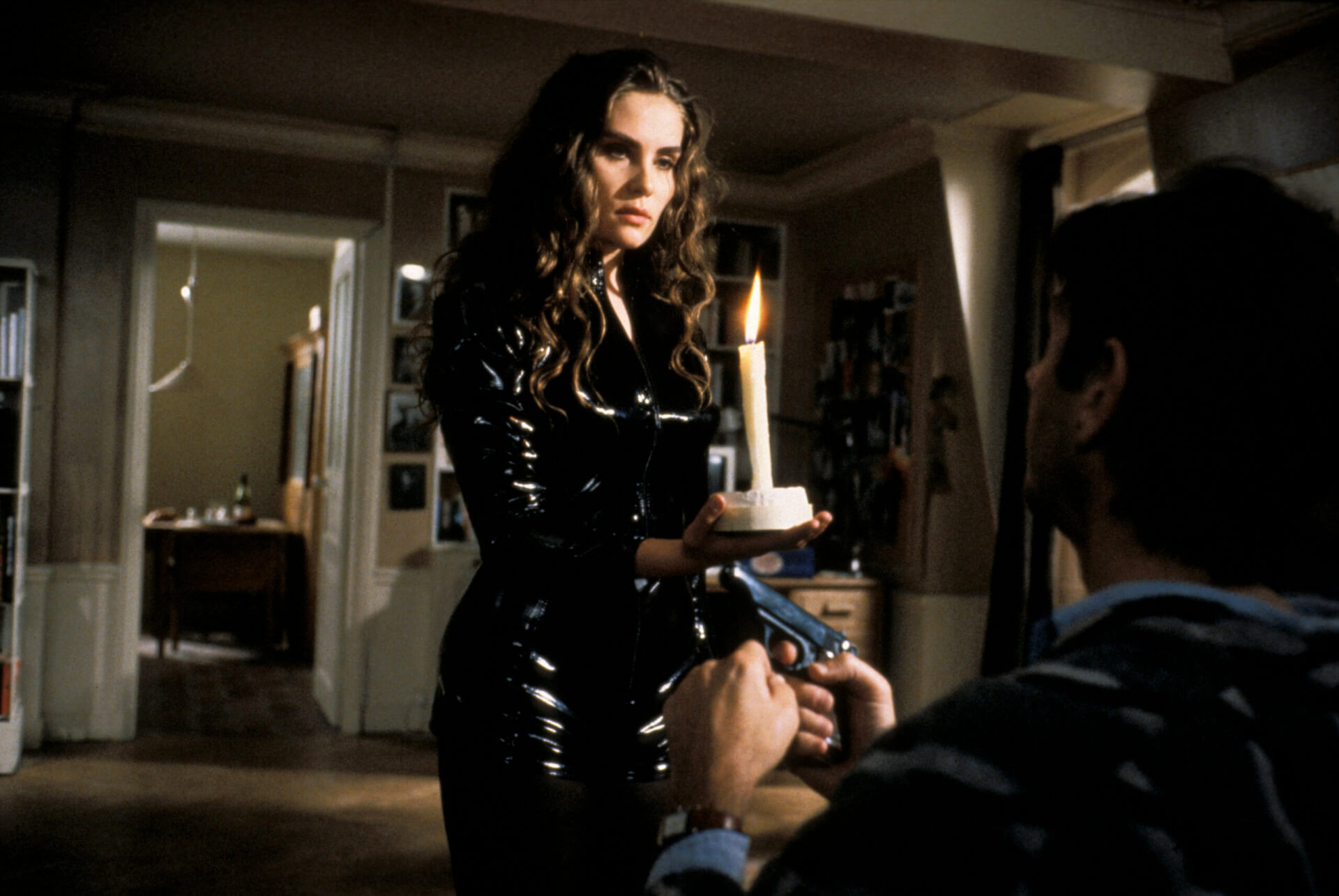
He regains freedom – but she still loves with the same love. She knows much has changed, but naively believes it can all be pieced together. And so one evening, Oscar finds her sleeping on the doormat outside his door. The girl humiliates herself, begs him to take her in, which he does, on his own terms…
Everyone has a bit of a sadist in them. And nothing brings it out more than knowing someone is at our mercy.
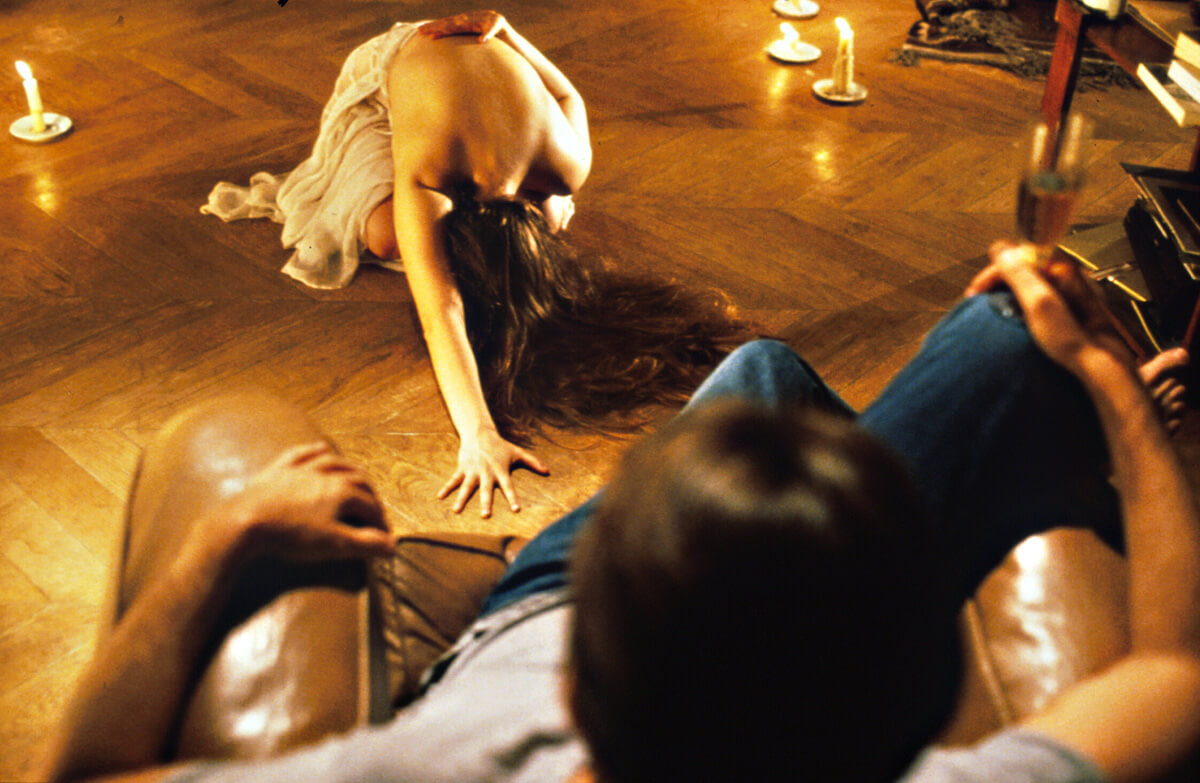
Thus begins the last stage of torturing Mimi. Oscar meets with other women, publicly humiliating his former lover. When she gets pregnant, he explains that the child cannot be born… It’s a great scene – the girl averts her eyes, sobs, trembles, but does not resist. She is a shadow of a person. Destroyed to the limit, she has no strength left for anything. But does he enjoy causing her so much suffering? He punishes her for still loving him, for being addicted. Given unlimited power, he uses it. But one can doubt if he finds fulfillment in this. Oscar just wants to rid himself of this woman from his life. He decides on the ultimate step that will free him from Mimi… he tries to gain her trust, promising a trip, pretending to the last moment that he will fly with her – even boarding the plane with baggage… of course, in the finale, Mimi is left alone. She departs, and he is free. Every night he has a different woman, wants no feelings, the slightest commitments. The only thing that attracts him is the taste of sex. By a stupid accident, he is hit by a car. In the hospital, Mimi visits him. Beautiful as before, sweet, but no longer so naive. It’s time for revenge. She makes him disabled and informs him that from now on, she will take care of him. It is care like he once provided her. She fulfills her duties, but does not miss any opportunity to humiliate and hurt him. Mutual destruction is as strong as love, it is part of it…
There is no joy in hurting someone to whom you feel no emotion…

They are connected by something difficult to describe. They are trapped with no way out. They take on roles that were once foreign to them – he, paralyzed from the waist down – dependent on the woman he can no longer have, locked in four walls, enslaved. She – from the role of a loving and naive woman jumps into the skin of a demon, obsessively delving into revenge. When one evening she dances after dinner with another man in front of Oscar, it is the final nail in his coffin. The erotic dance of the two ends in the bedroom. They do not close the door behind them so that Oscar can hear everything clearly. This sequence is complemented by one of Vangelis’ best pieces created for Bitter Moon. Thanks to this musical illustration, the scene overflows with animalistic eroticism, fully allowing one to step into Oscar’s role. To understand what he feels at this moment. Mimi uses sex to humiliate the one who ruined her, for whom she had an abortion, and who is now entirely dependent on her due to his physical disability, just as she once was due to her overwhelming love. The dependency between the two is fascinating, there is no escape, they become slaves to their desire, and when it passes – the passion for destruction. The solution, however, is within reach… On Mimi’s birthday, she gives Oscar a gun… they get married and embark on the last journey of their lives…
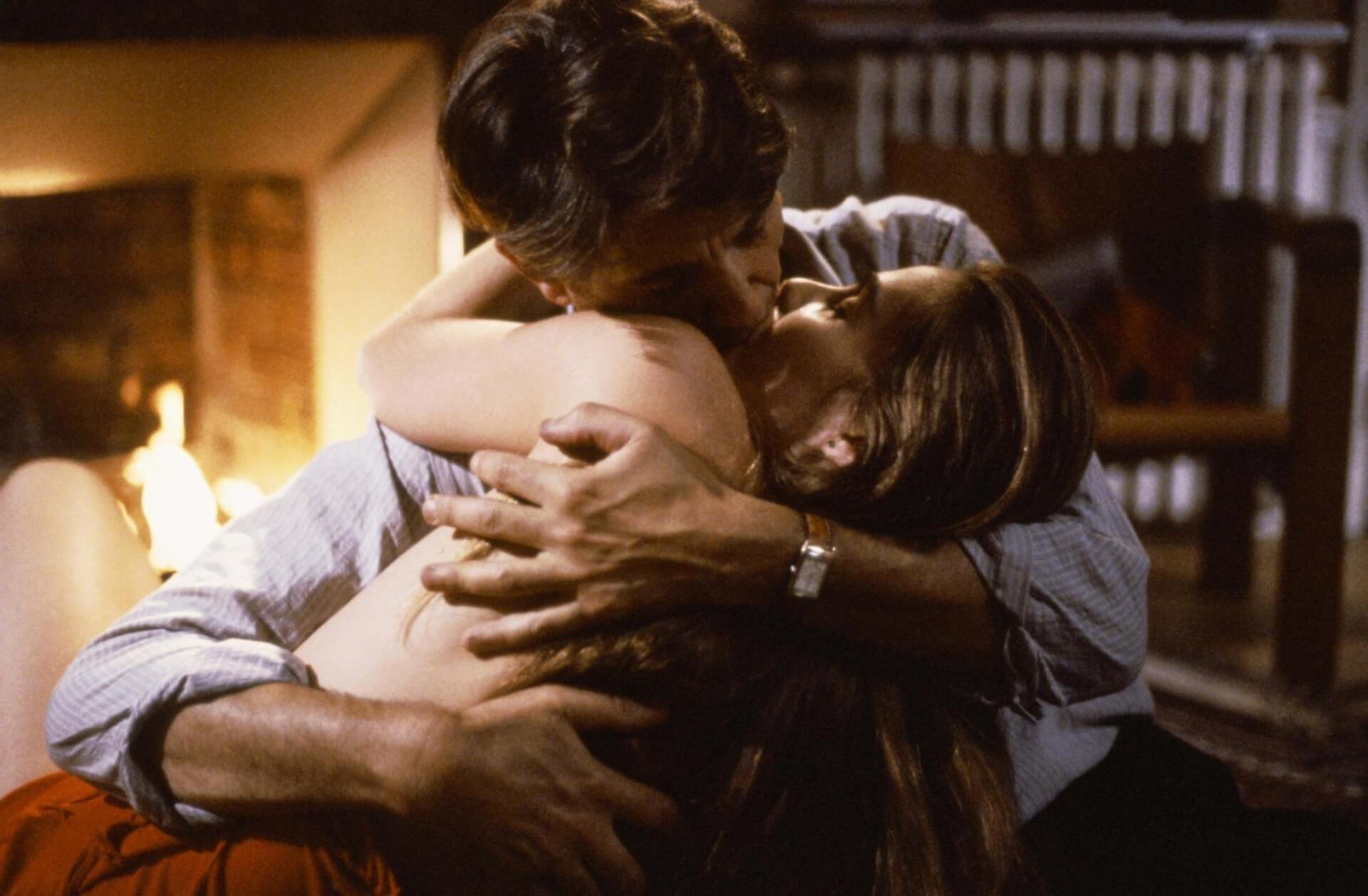
– Are you sailing to Istanbul?
– Yes. And then we’re flying to Bombay.
– And you, where to?
– Further… much further…
The final act of the drama is to unfold before the eyes of a lost married couple – Fiona and Nigel. We do not know when Mimi and Oscar decided to commit suicide. However, it was planned, which is hinted at multiple times in the seductive blonde’s statements. This is simply another step, following the marriage – a drastic fulfillment of the words “until death do us part.” It is the only way to regain freedom, mutually renounce each other, and atone for sins. Oscar ends the story at the penultimate act of the tragedy…
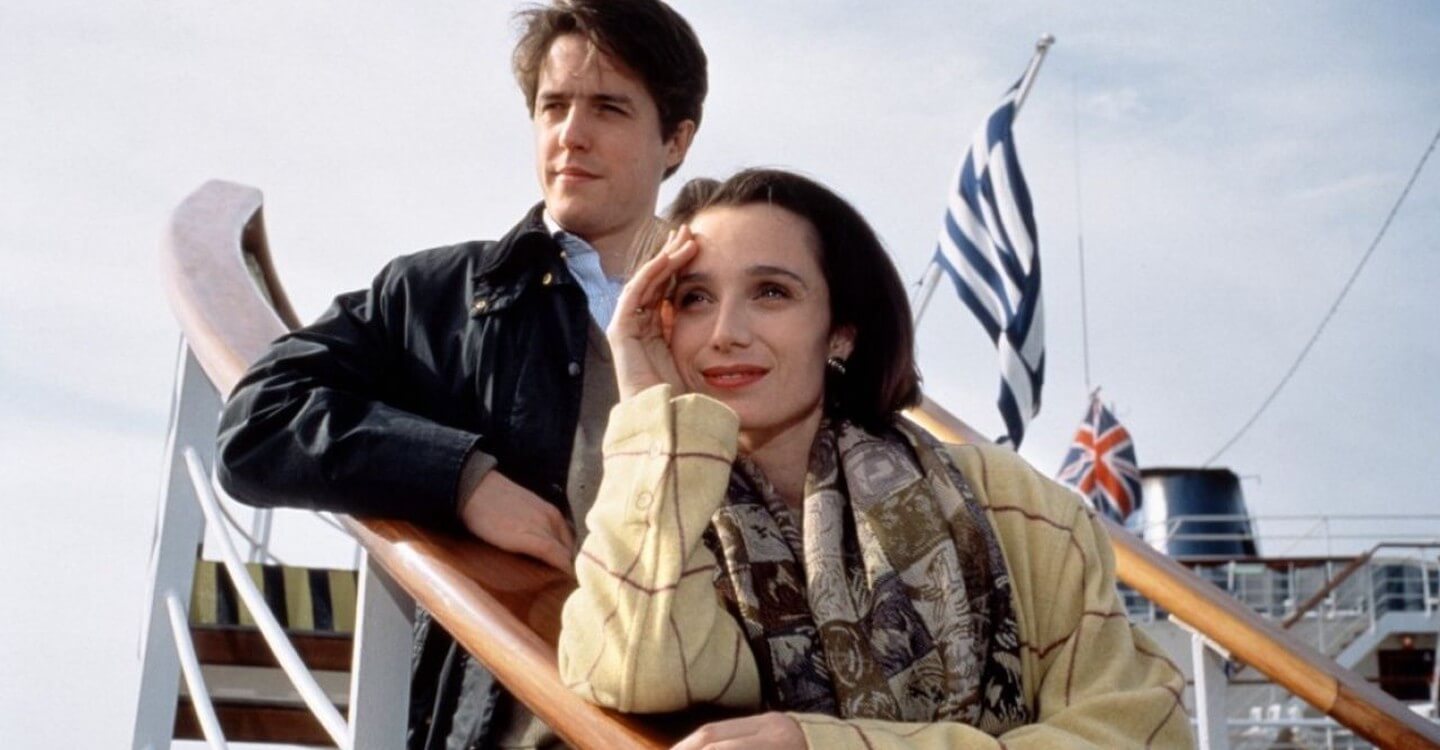
While weaving this story, he presented extreme voyeurism. Listening to this man, repulsive, visually completely unattractive, and juxtaposing him with Nigel – handsome, charming, it turns out that the viewer does not despise the former. The aging cripple speaks about everything, talks about what his interlocutor dreams of, which makes him obsessively desire Mimi, though he will never admit it, presenting “righteous indignation.” The scene where the listener sits in Oscar’s wheelchair is no coincidence. Nigel symbolizes people who cannot cope with themselves, deceiving, yet wanting to be seen as paragons of virtue, believing they have reached the essence of understanding and can judge what is correct and what is not, all while being completely uncritical of themselves. He is an emotional cripple, ashamed of his own desires, pretending everything is as it should be.
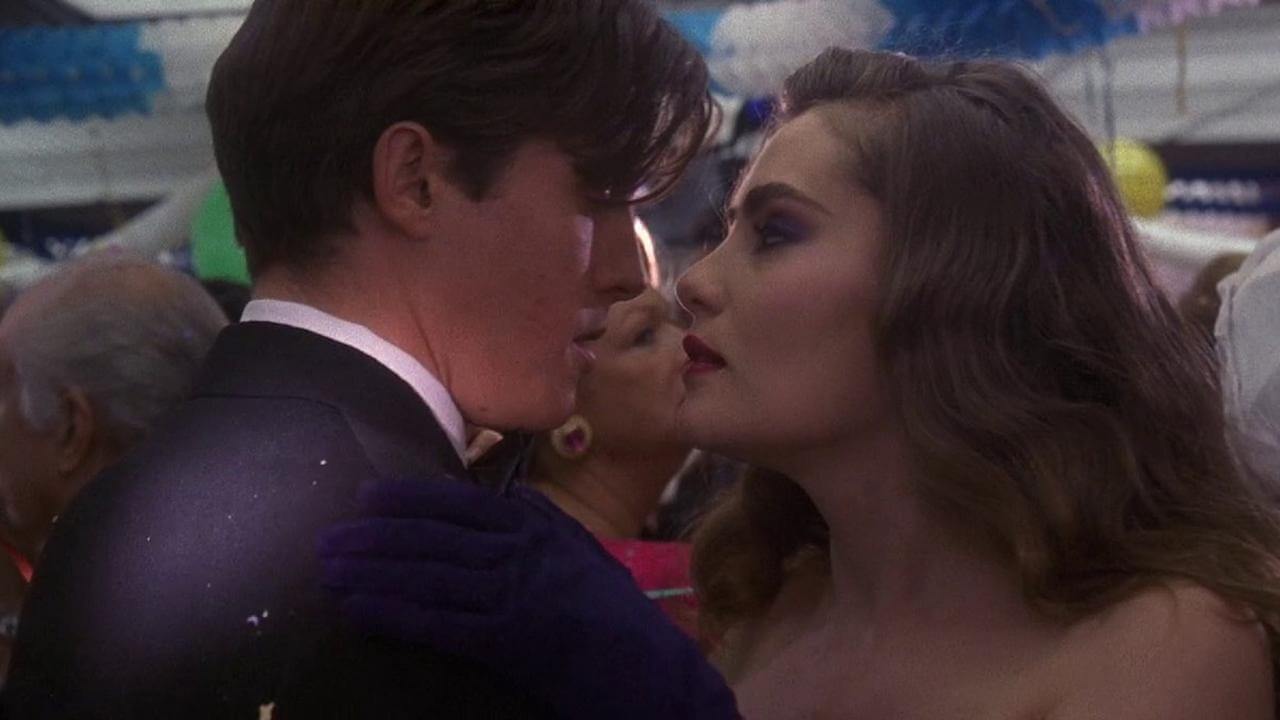
This juxtaposition seems to be the creator’s joke, a brazen demonstration that the repulsive masochist is better than the average citizen. The criterion is truth, mocking the pretenses around which people build their perceptions of others. Is it possible to respect a person like Nigel? The work’s exhibitionism is not just about showing the erotic perversions of the lovers but using them to analyze human hypocrisy. This story reveals the true nature of the person listening to it. The author mocks this character, showing who the man really is, one who has nothing to reproach himself for… That’s why the New Year’s Eve scene, when Nigel dances with Mimi, and the dialogue between them, is so wonderful:
– I think I’m in love with you.
– Come on. I am just a dream. A distraction in a boring journey.
– So, is this still a game?
– Did I ever say it wasn’t?
– But I really am in love with you.
– And that’s why you will never have me.
– You hurt me.
– Like you hurt your wife?
– She knows nothing about us.
– She is watching us right now.

Of course, the only thing the unsuccessful seducer can do at this moment is run to his wife, offering her the statement that… “it’s wonderful you came to the ball.” However, she turns out to be a stronger character. Watching Mimi, who stayed on the dance floor, she heads towards her. And thus comes one of the most magnificent scenes – the dance of the two women, to the sound of Slave to Love. A sequence charged with eroticism, magic, but also one of the most honest moments in the film. It sounds paradoxical – doesn’t Fiona just want to take revenge on her husband? Nevertheless, Nigel is not important here. He is just a puppet, a spectator, a weak, dishonorable man whose suffering from rejection is hard to truly care about. Hugh Grant adds a lot of charm, yes, but beneath that friendly face hides a repulsive man. Can two women, united in a passionate kiss, really think of him in that one, magical moment? Possible, but… why? At that moment, he loses them both. He does not know what love is, passion, he wants Mimi because she physically attracts him, because his marriage is on the brink of collapse, but does the funny scene where he plans what to say to his wife after betraying her not make him seem extremely pathetic? And yet he gets a chance for rebirth…

The love depicted here reminds me of the one Kar-Wai talks about, most perfectly in 2046. Delicacy, passion… the apex of desire… and here it should end! One can preserve its perfection, uniqueness, the most wonderful memories, but if this feeling is exploited further, it will turn into hatred and humiliation. For passion, which starts with fire, burns the lovers. Kar-Wai’s characters escape, also suffer, but they can save themselves; they are not as greedy as Mimi and Oscar. The latter, through their insatiability, combined with one of the most developed human abilities – the gift of causing pain, become slaves to a feeling whose purity and innocence died long ago. Yet, there is a strange catharsis here. They turn to ashes, but there is a chance that from this ash, Nigel and Fiona’s love will be reborn. It may be hard to believe in a chance for a hypocrite like the character played by Hugh Grant… but he receives it.
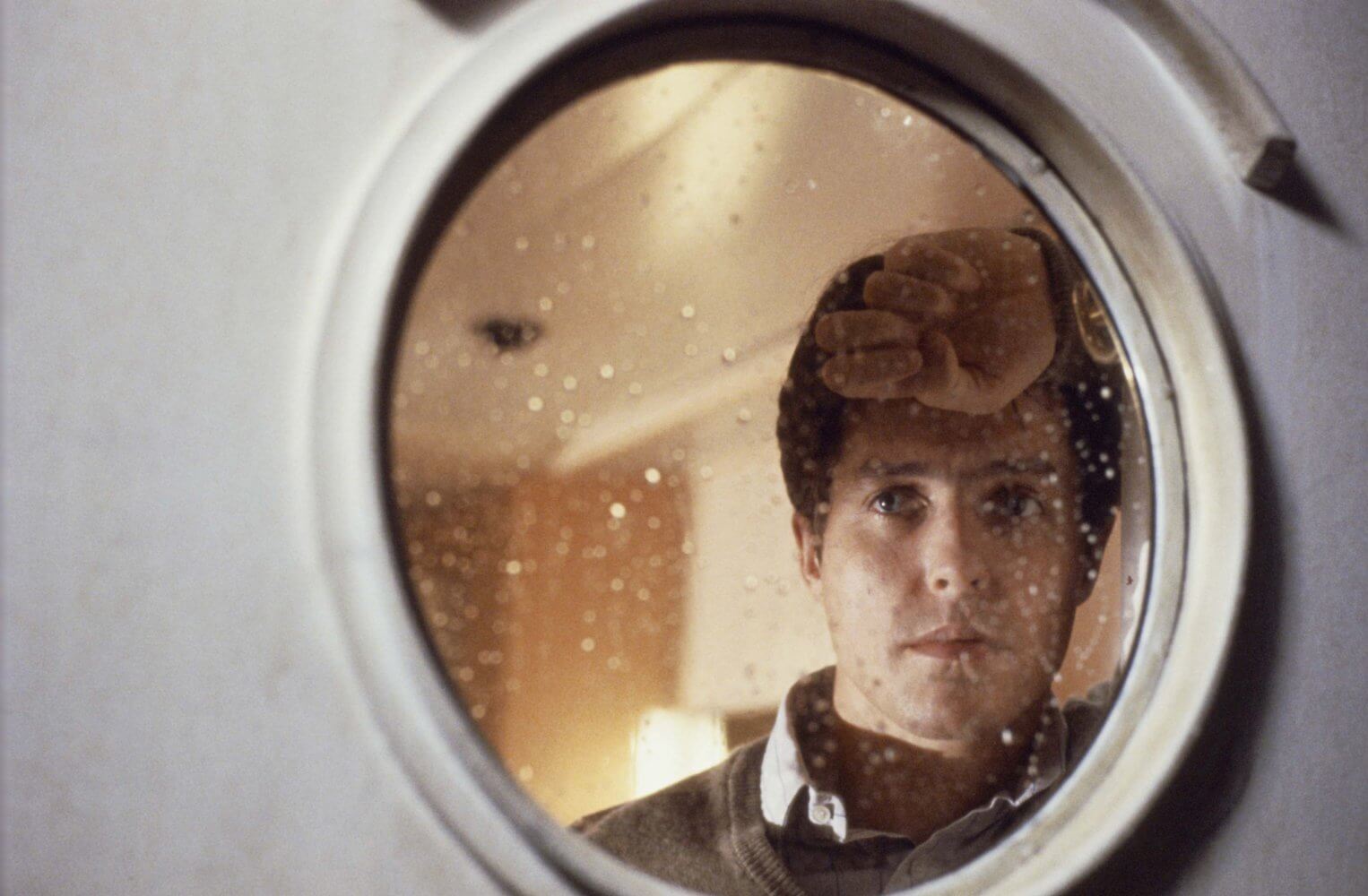
The ending itself is perfectly played out (kudos for changing it from the one in the novel), tears seem to symbolize the purification that should occur after seeing an ancient tragedy. This is indeed what the image is. Nigel is the viewer, observing the struggle of the actors. Will he manage to take anything from what he has heard and seen, what he has witnessed and been a part of? That depends only on him. It may not seem entirely fair that such a person gains a second chance, achieves what is beyond others’ reach. And yet it gives hope to most viewers. This film perfectly exposes its audience. One can see in it just a scandalous erotic movie, which Polanski used to return to the top, but one can also see what it is actually about. By touching on the topic of erotic fascinations, which include sadomasochistic elements, Polanski analyzes something much more important, typical human behaviors, feelings, the destructive power of love. Of course, one can ask why he used such means. Means that could have pushed the work into the category of erotica. The answer is found within the image itself. People cannot talk about love the way Oscar does. They are ashamed of it, like Nigel, sweating as he listens to the details his interlocutor shares.
– Nigel, what’s wrong? Are you shocked?
– Well, you’re going too far…
– I delve into such details only to show you how much my body and soul were enslaved by the qualities of the being who impressed you so much.

It’s not just about eroticism but how it translates into all other spheres of human life. The author, in this case, to illustrate addiction, moments of happiness, and falling to the bottom, used perhaps a controversial form, but did so with such sensitivity that it’s hard to find anything shocking in it, especially today, so many years after the film’s premiere. The image is extremely sensual, especially expressed in the motif of dance, repeatedly shown. Two lovers destroyed themselves, their love burned them, their mutual dependency, but for a moment, they were able to live in full happiness. They found it in each other. They could desire and hate, and in everything they did, there was genuine passion. They could also pay for becoming slaves to the feeling. They experienced too much and fell into an abyss, but they did what most people are not capable of… they allowed true love to rule them for a brief, fragile moment. Then it was too difficult to part with it…
This is where the story should have ended. The lovers should have parted at the height of their passion. Not waiting for its inevitable decline.
My desire began to wane. She could lie beside me, beautiful and sensual, but it no longer aroused me. I began to blame her for not exciting me as before. We fell into a narcotic addiction to television – that marital prosthesis that means we don’t have to talk to each other…

Would they, if they could, turn back time and never meet? Looking at the idyllic early scenes, it’s hard to believe in such an outcome. They had what some people can never achieve in their entire existence. They took from life all that was beautiful and all that was most vile… but they could burn brightly and then extinguish. The tragedy ends with the tears of the audience, unprepared for such a finale, but through it, they attain catharsis. During the performance, Fiona and Nigel’s marriage is stripped of prudery, hypocrisy, and their problems are revealed, which they will now have to face. Polanski once again demonstrated how easily he delves into the psyche of the characters, how he manipulates feelings, and bit by bit reveals the darkest corners of the human soul.
Words: Iwona Kusion

